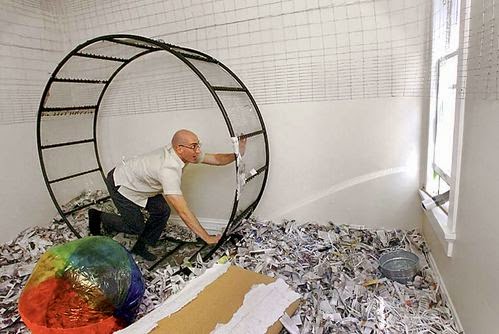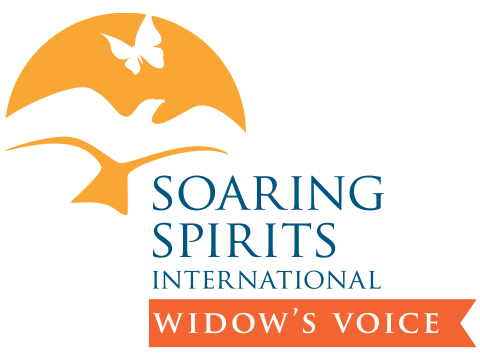 “Walk around feeling like a leaf.
“Walk around feeling like a leaf.For most of my life, I have yearned to write. I believe and have been told that I have some talent, yet I have let other distractions keep me from pursuing what, if I am honest, I have always felt to be my life’s calling.
I have not developed the discipline to write, no matter what. I have let other things get in the way.
First, I had to swim through the trauma of my childhood. I used many methods, in my youth, to do that, including travelling to far reaches in escape, and ingesting multitudes of intoxicants as numbing agents. Both of those methods took up lots of time–time I could have spent writing.
Then, I decided to birth and raise my son, while weathering the grief of losing my father to cancer. I moved with my mother to Florida, living in the midst of my family, and returning to work full time, to support us.
I met my first husband, and wrote bits and bobs along the way, with a few of my essays published in our city’s newspaper. I took some classes in writing, and wrote in spurts. But I didn’t find the time to give it my full attention.
When my son was raised, I joined a series of writing workshops with the renowned author, Connie May Fowler. Connie May is a passionate, vibrant writer and teacher who is the author of numerous novels, essays and memoirs. I met with other writers, in those years, and we worked diligently on our writing, honouring it with daily attention. I was able, during this time, to produce some good pages.
Then, my mother and my sister came to live with me, and I spent the next two years helping them transition with dignity to their deaths. This monumental task didn’t leave much time or energy to write.
I remember one day, in the summer of 2008, when I was due to travel to our novel writing weekend. I was so looking forward to going, and I had arranged for my brother to come and sit with my mom, in my absence, while she was recovering from surgery in a short term nursing home placement.
I went to visit her and tell her goodbye before travelling north to meet my writing teacher and friends. And I found her lying in bed, practically comatose, having not eaten any of her morning meal, a fact that had warranted no notice or concern. I sat at her bedside and fed her tiny spoonfuls, for several hours, that day, like one would feed an infant, or a tiny bird. And I knew, then, that I could not leave her side to pursue my writing. I called my group and sent my apologies.
I spent the next few months at her bedside, until she died.
After her death, a veil was lifted from my eyes, and I saw, for a moment, the preciousness of our time on this earth, deciding to free myself from the safe, comfortable job I had been doing, in Medical Foster Care, for the past 13 years. It was a good job, at a good salary, with the promise of a substantial pension. But I didn’t want to sit in that job and count the days until my retirement.
It was shortly after my mother’s death that I took a chance, and moved to England.
The first year of my life here was spent adjusting to my new country and dealing with my grief. I entered into some writing mentoring with Connie May, again, via Skype, and made some progress on my novel.
Then I met Stan.
And I fell so hopelessly in love that I found it hard to concentrate on anything else. My world had a new vibrancy and meaning. I wrapped myself around him and held on for the wild ride we shared together. I am so happy that I did it.
But I didn’t make time to write.
Almost all of the wonderful, talented writers I met, during those workshops, now have their novels published. I am certain they, too, had obstacles to overcome, life circumstances to navigate, sorrows to process. Yet they made the time to honour their art. I have so much respect for them. And I feel a bit of envy, too.
Now, my husband is gone, and another veil has been lifted. And I have to ask myself, what matters?
What am I, as the poet, Mary Oliver, says, to do with my one wild and precious life?
I am not set financially, by any means, But, since his death, I have found it harder and harder to trudge to a job that now holds so little meaning for me. It’s not that the work environment is toxic. My managers and colleagues have shown me more compassion and understanding during this loss than I ever thought possible. It is just that I have lost my tolerance for pouring over budgets and targets and audits and documents.
I have spent my entire career, as a Social Worker, mopping up the failures of this society. And I don’t want this to be my primary focus, anymore.
I will always remember the story Stan told me, about when he left his job, at the age of 48. He had worked his way up from city gardener to Assistant Director of Housing for all of Manchester. This was a high powered position with massive responsibility. He worked 60-80 hours a week and never took a sick day. He also smoked 60-80 cigarettes a day. He was stressed, anxious, and unhealthy.
Then his father died, and some other things happened, and he took medical leave from that position, never returning to it.When he left, he told me, he stuffed all of his unfinished work in his briefcase and brought it home with him, work that he had agonised over for months. He was certain that there would be huge repercussions when upper management saw that this work had not been completed.
Yet no one ever asked him for it.
All the time he spent sweating over that paperwork, and, when he left, it didn’t mean a thing.
So, what matters, really?
What am I to do with my time, now?
It matters that I attend to this grief and honour the memory of my husband.
It matters that I walk and revel in these hills that surround me.
It matters that I spend time with friends and family and show them I love them.
It matters that I return to my creative source.
It matters that I study the dharma.
It matters that I write.
I am cutting my hours to half time, after Easter. I am going to pay attention to what matters.
We could tumble at any second. We could be cut right down.
I want to honour this life, for the time that I have left, however long that may be.
